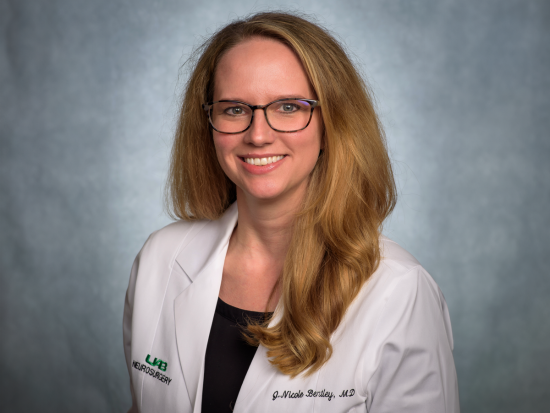 At the recent Congress of Neurological Surgeons (CNS) Annual Meeting, University of Alabama at Birmingham Department of Neurosurgery Associate Professor Nicole Bentley, M.D., discussed the evolving landscape of brain stimulation technologies, focusing primarily on deep brain stimulation (DBS) and responsive neurostimulation (RNS).
At the recent Congress of Neurological Surgeons (CNS) Annual Meeting, University of Alabama at Birmingham Department of Neurosurgery Associate Professor Nicole Bentley, M.D., discussed the evolving landscape of brain stimulation technologies, focusing primarily on deep brain stimulation (DBS) and responsive neurostimulation (RNS).
Both DBS and RNS have become vital tools in treating neurological conditions, such as epilepsy and other movement disorders.
During her presentation, Bentley highlighted how DBS and RNS offer targeted treatments by modulating brain activity.
DBS is commonly used to treat disorders like Parkinson’s disease and dystonia by delivering electrical impulses to specific brain regions. According to Bentley, its precision in regulating abnormal brain activity has shown remarkable results in improving patients’ quality of life.
RNS offers a more responsive approach to brain stimulation. This technology detects abnormal brain activity in real time and delivers tailored electrical stimulation to counteract the abnormalities.
Unlike DBS, which provides stimulation at set intervals regardless of brain activity, RNS activates only when specific activity patterns are detected. The responsive nature of RNS makes it a promising treatment option for patients who require more adaptive interventions.
Despite the promising clinical outcomes of both DBS and RNS, challenges remain. Bentley addressed the difficulties some patients face in securing insurance approval for these treatments, noting that approval can vary based on geographical location and individual insurance policies.
Bentley also touched on the role biotech manufacturers play in the development and refinement of these devices. Ongoing clinical trials and collaboration between medical professionals and the biotech industry are essential for advancing the field and ensuring new therapies meet the safety and efficacy standards set by the FDA.
Bentley's talk was given in collaboration with Akihide Kondo of Juntendo University, located in Tokyo, Japan, who presented on vagus nerve stimulation (VNS).